We have all been tempted to share our favourite snacks with our friends wagging their tails at us. But while our hearts may be in the right place, we can make them sick by giving them food that’s unsafe for them.
Here’s a list of food items you should never give a dog
1. Raw meat, raw bones, raw eggs
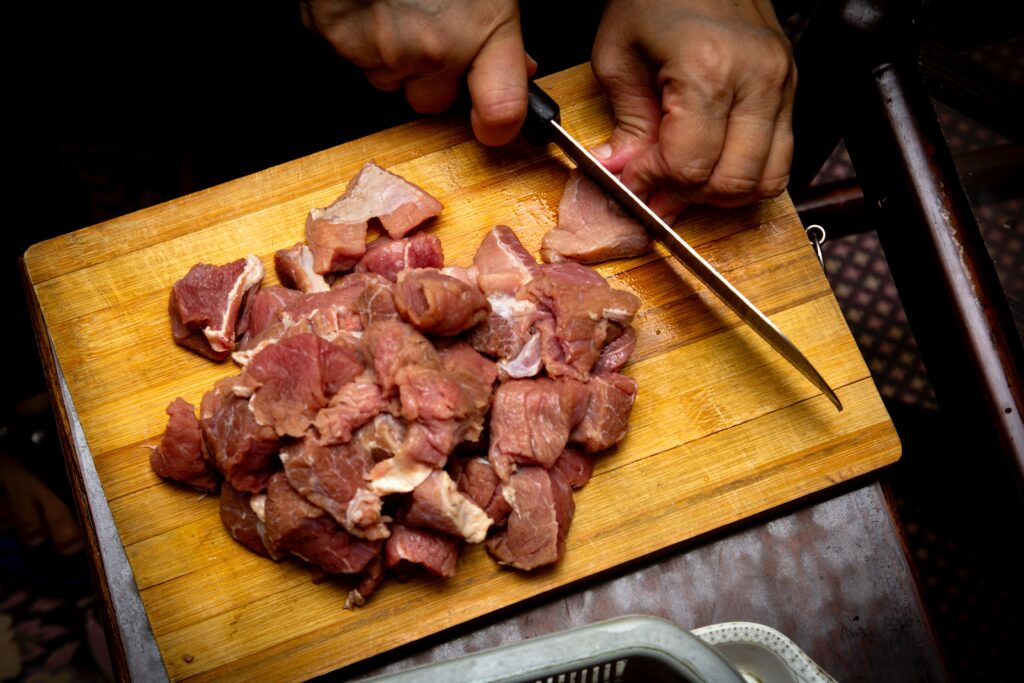
Raw meat and raw eggs can contain bacteria that can be harmful to dogs, causing food poisoning. Symptoms of food poisoning include vomiting, fever, and enlarged lymph nodes. Raw eggs contain an enzyme called avidin that decreases the absorption of vitamin B, which can lead to skin and coat problems. Raw bones could injure the digestive tract or damage their teeth. Cooking meat changes its structural composition rendering them not only harmless but nutritional.
2. Onion and garlic

Onions and garlic contain a harmful substance that can damage a dog’s red blood cells, limiting their ability to carry oxygen through the body. This may lead to weakness, vomiting, and trouble breathing. This is as dangerous as it sounds and can be fatal. So while plain bread is fine for dogs in moderation, never share your garlic bread with them.
3. Chocolate, coffee, tea and other items containing caffeine

Caffeine-rich food, when ingested by dogs, can cause vomiting, diarrhoea, excessive thirst and urination, hyperactivity. All these contribute to abnormal heart rhythm leading to tremors, seizures, and even death. Remember, the darker the chocolate, stronger the coffee or tea, the more dangerous it is.
4. Salty snacks
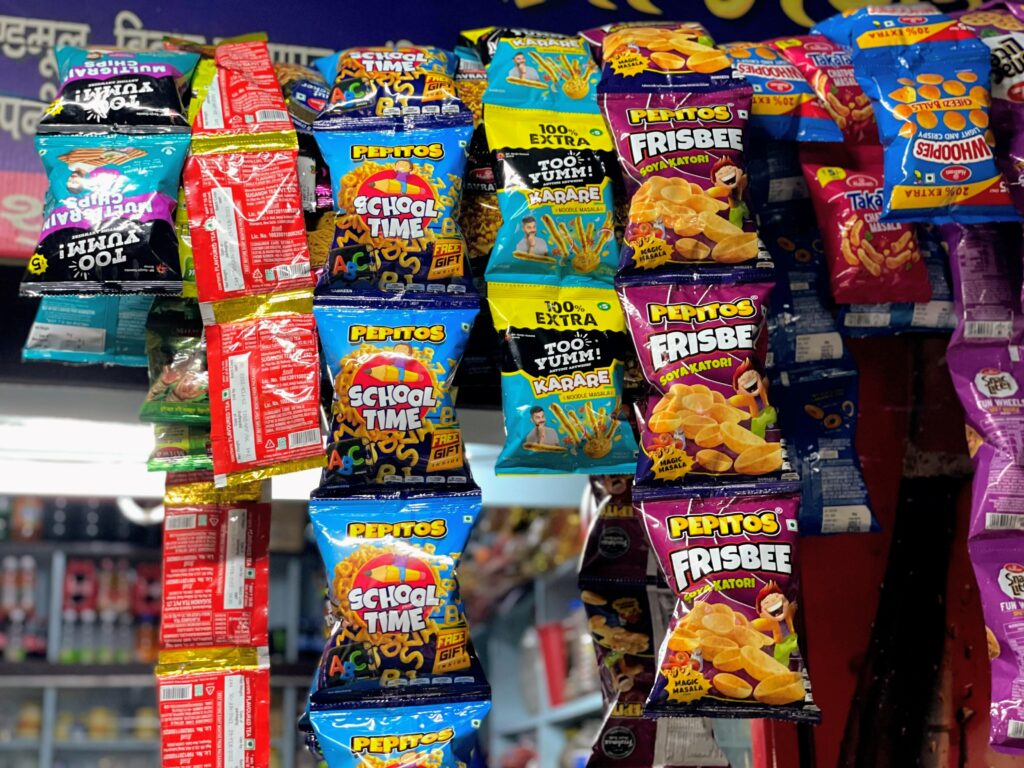
Large amounts of salt can cause excessive thirst and urination, or even sodium ion poisoning in pets. Signs that a dog has consumed salty foods include vomiting, diarrhoea, depression, tremors, elevated body temperature, seizures and even death. We encourage you to avoid feeding salt-heavy snacks like potato chips or salted biscuits to dogs.
5. Chewing gum or candy
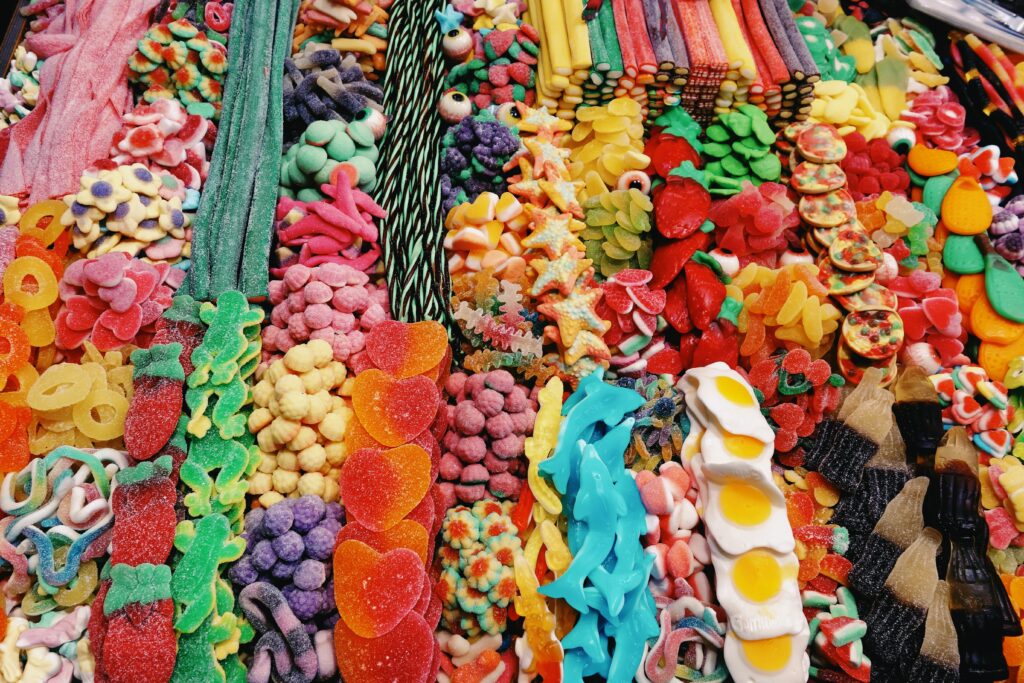
A dog wouldn’t know what to do with the strange, chewy substance and may swallow it, which can cause choking or blockages in the digestive system. Candy can result in the same issues, especially if it’s super chewy, like caramel or taffy. Hard candies can also fracture a dog’s teeth.
6. Dry Fruits (raisins or nuts)
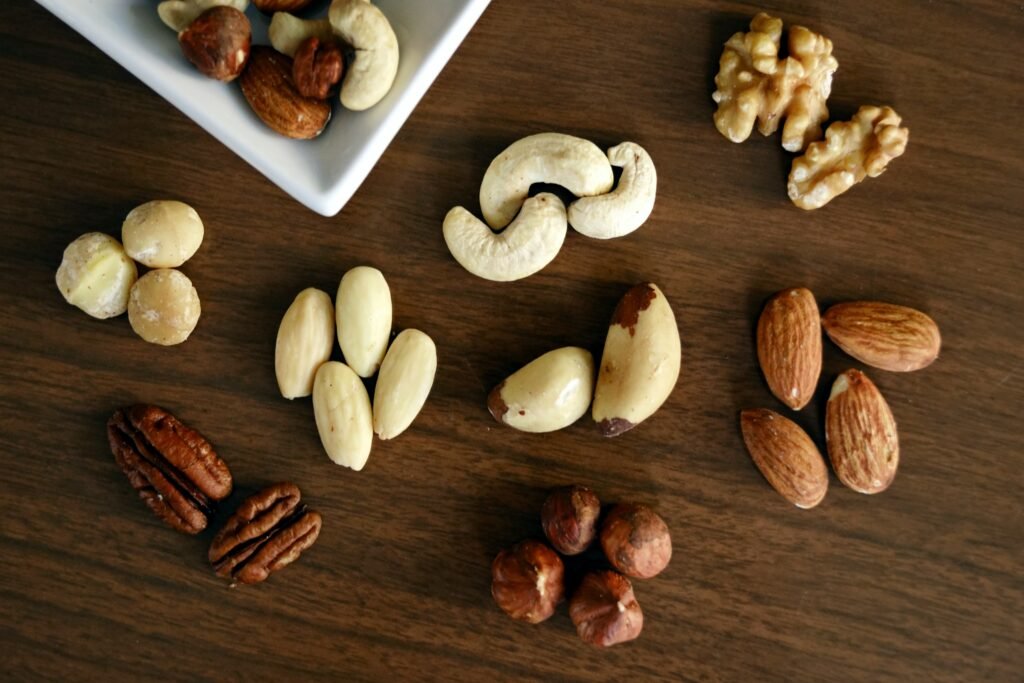
Nuts, including almonds, cashews and walnuts, contain high amounts of oils and fats. These can cause vomiting, diarrhoea, tremors, and potentially pancreatitis in dogs. Signs usually appear within 12 hours of ingestion and can last approximately 24 to 48 hours. Although the toxic substance within grapes and raisins is unknown, even a small quantity can cause nasty reactions for the dog and even result in kidney failure.
7. Alcohol

Alcoholic beverages and food products containing alcohol can cause vomiting, diarrhoea, decreased coordination, central nervous system depression, difficulty breathing, tremors, abnormal blood acidity, coma and even death. This includes rubbing alcohol and alcohol in hand sanitisers.
Do share this with your fellow dog-lovers about which foods should be avoided for dogs and why.
In case you suspect a dog to have consumed something not suitable for them, please contact a vet as soon as possible.
You can reach out to us on our helpline number – 9920737737
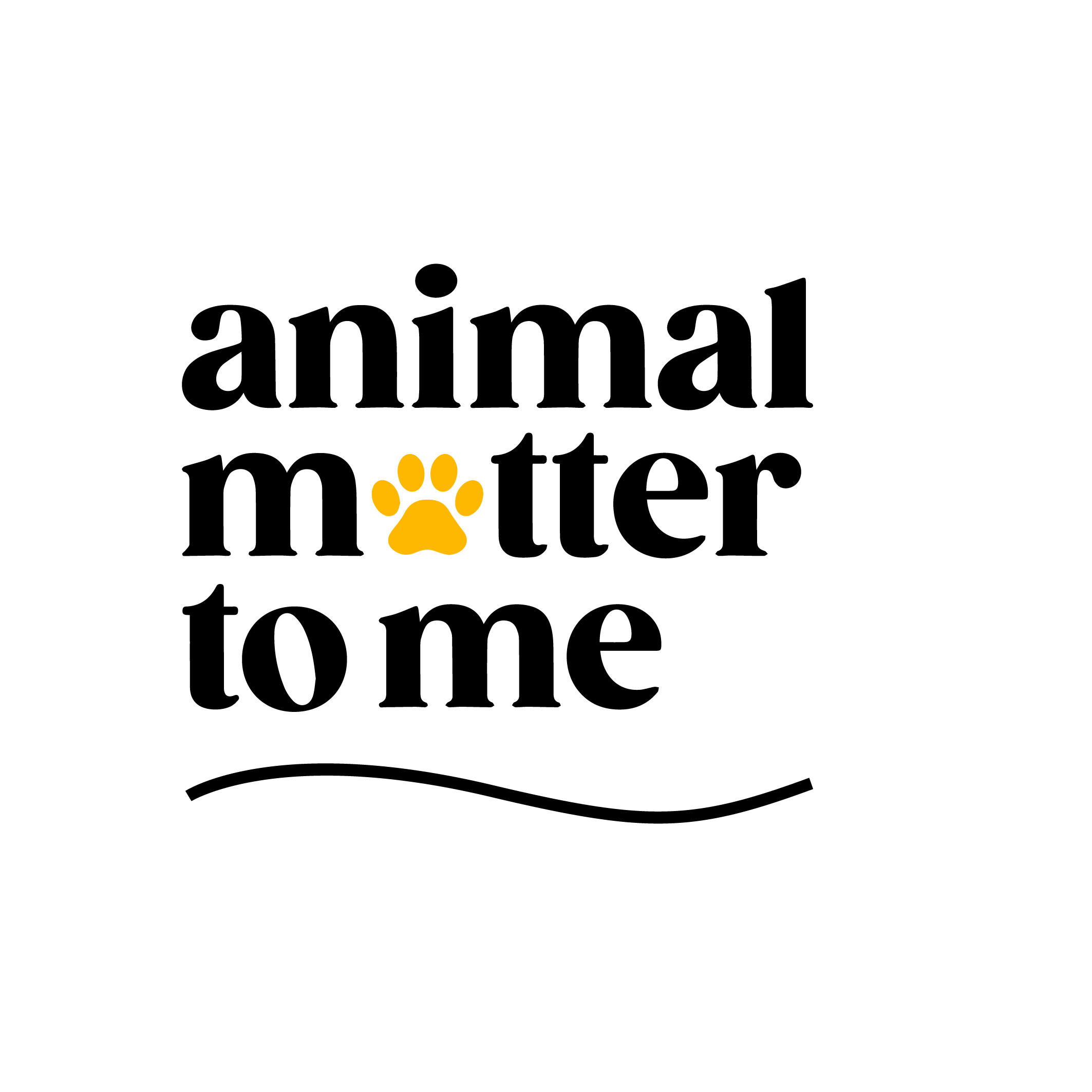
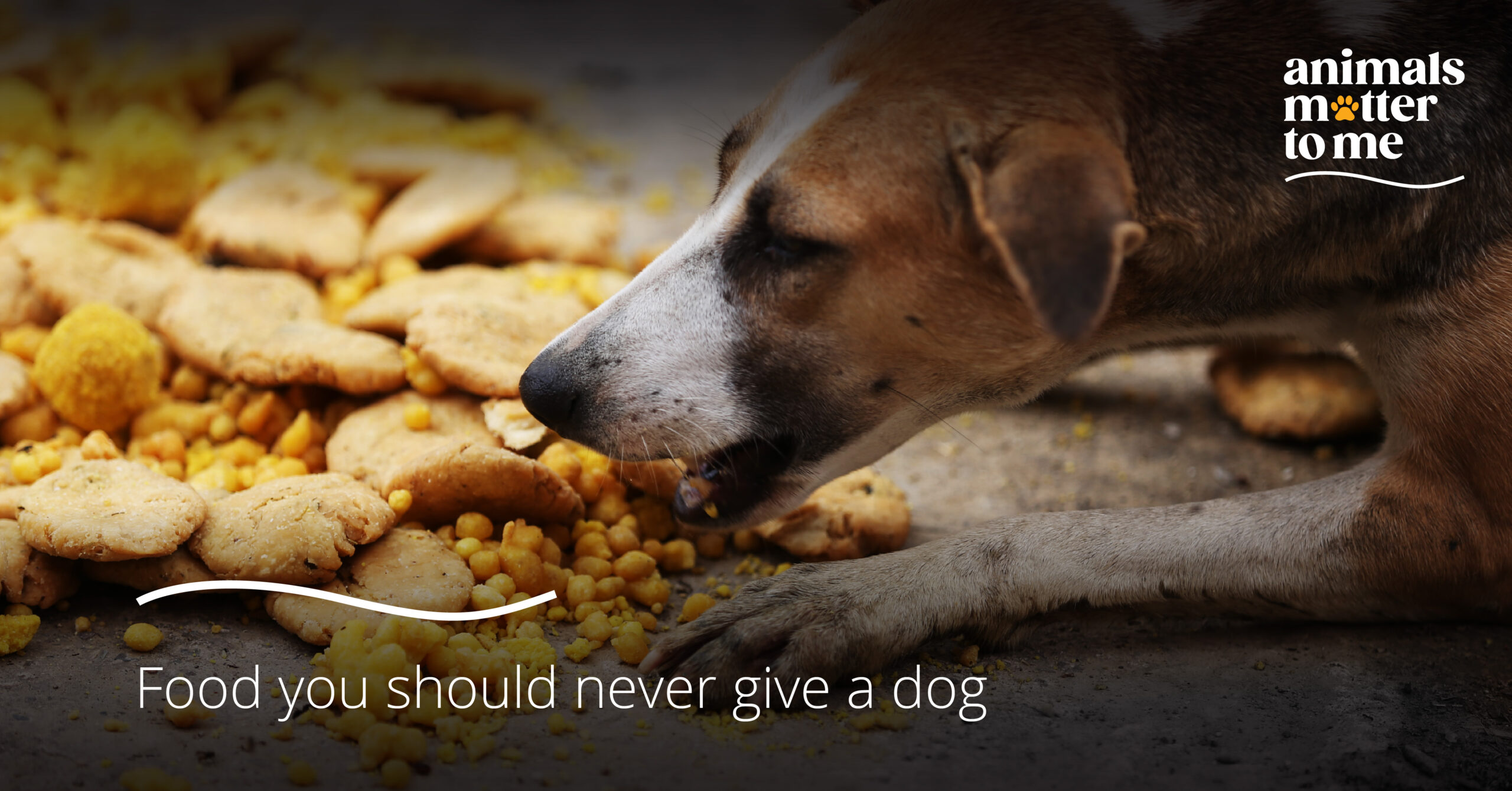
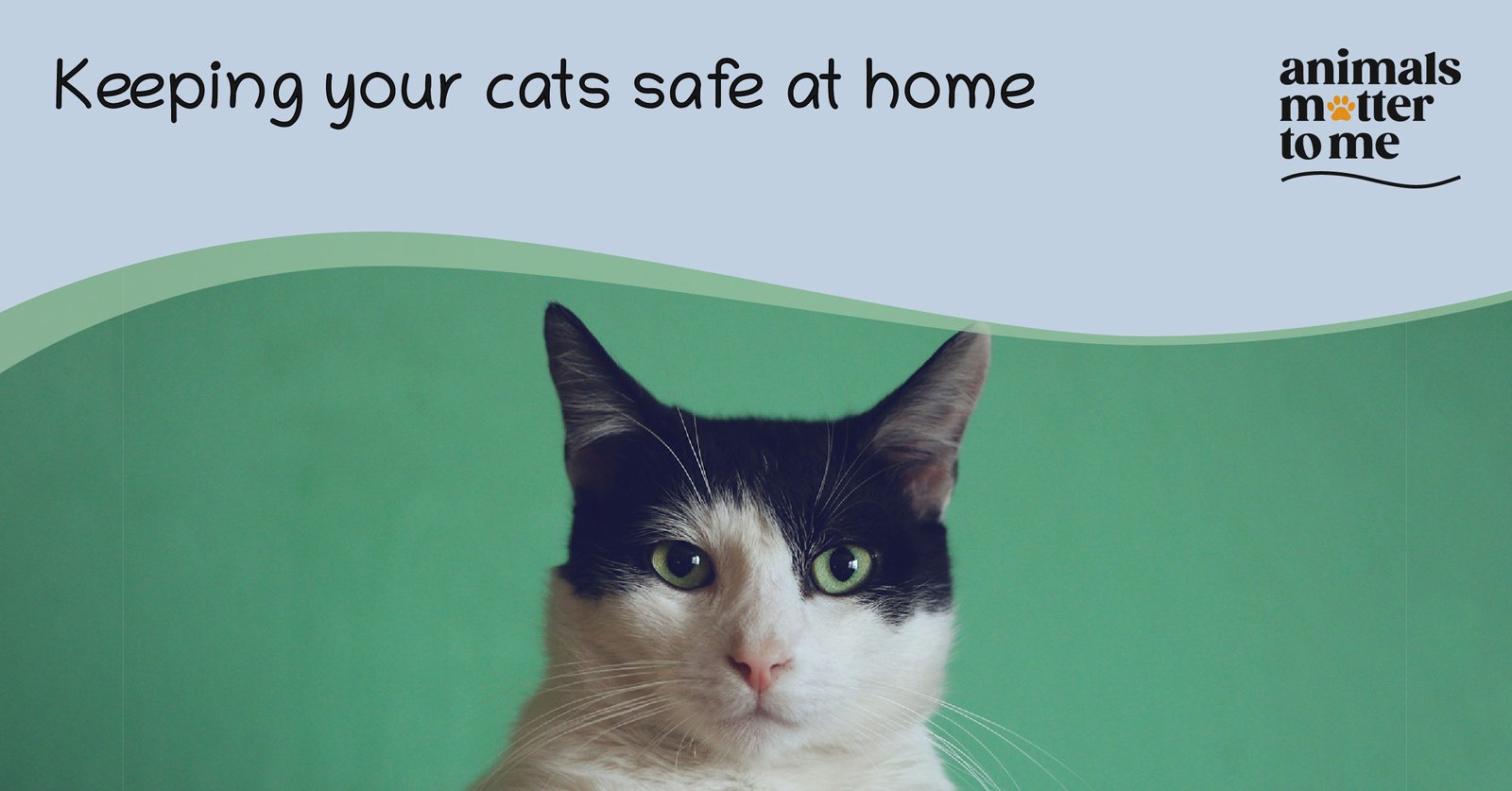
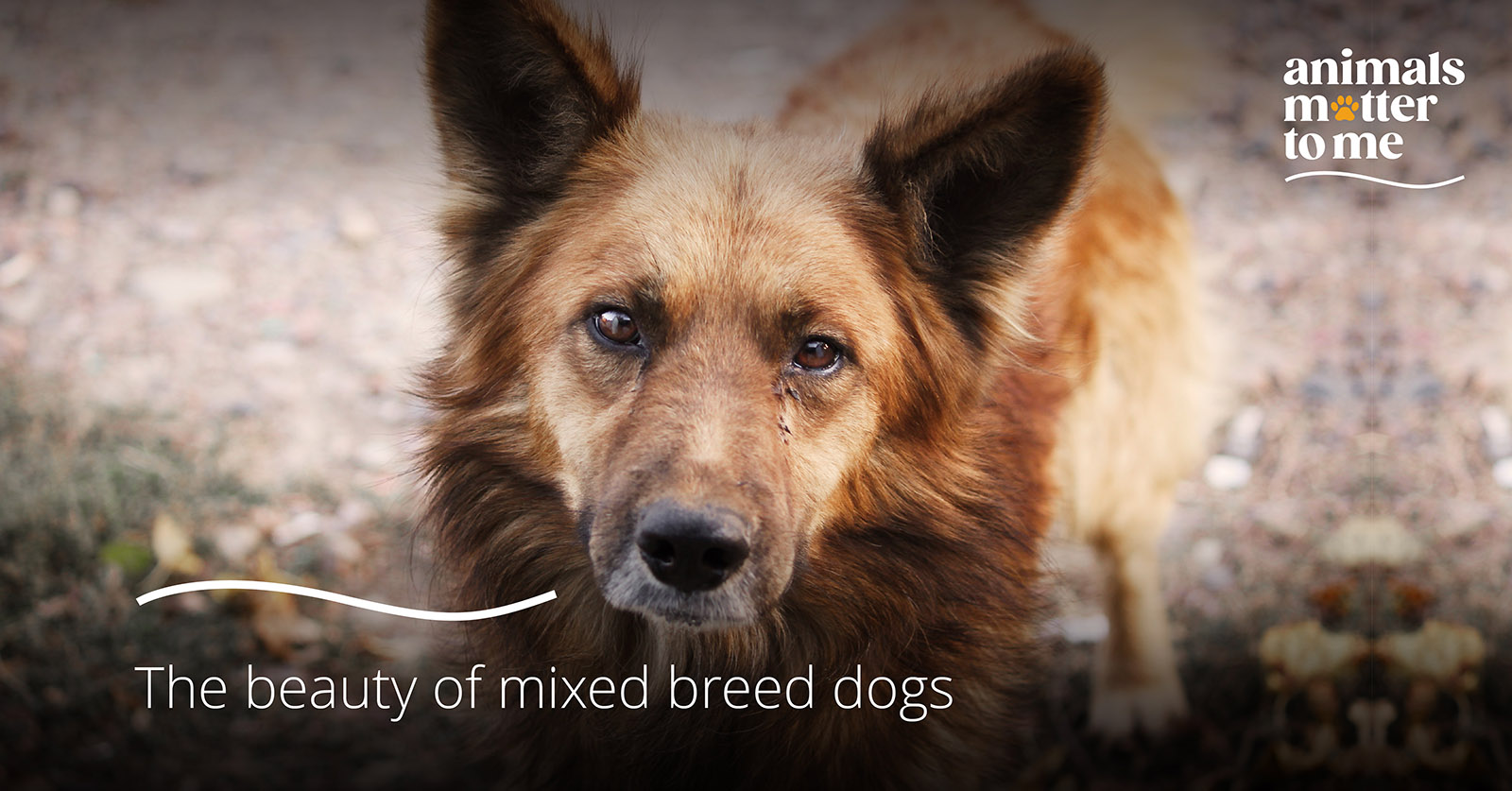

2 Responses
What are the easily available food options to feed a stray cat/dog?
Home-cooked fresh meals are always the best option. If that is not possible, you can visit the nearest pet store where you will find a range of wet and dry food for different age groups, animals with specific health conditions and more. Consult a vet to know the best food to feed your animal.